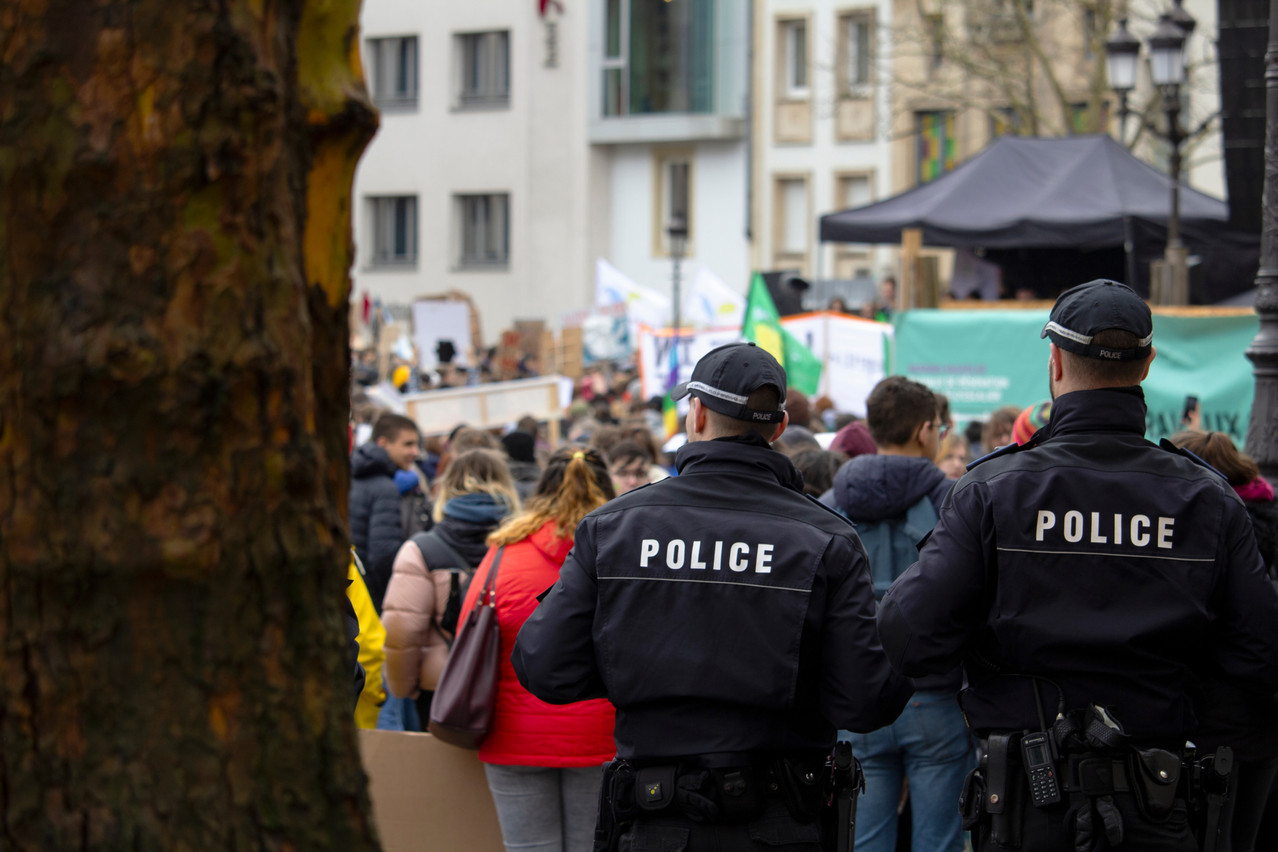The “Platzverweis” (expulsion order), in place since 2022 and inspired by a police measure in Germany, aims to call to order or remove a person who hinders entry to or exit from a public or private building. Bill 8426 provides, among other things, for this system to be strengthened, in order to “extend removal measures for people who display any of the following behaviours: disturbing the peace, public health or public safety; obstructing traffic on the public highway; preventing passers-by from strolling; annoying pedestrians,” explains by home affairs minister (CSV) on 17 July.
This bill also aims to introduce another administrative police measure: a temporary ban on premises, which can be decided by the mayor. For the consultative commission on human rights (Commission consultative des droits de l’Homme, or CCDH), first and foremost, the “reinforced Platzverweis” covers a “wide range of vaguely formulated behaviours, entailing a risk of arbitrariness, discrimination and non-compliance with the constitution and the European Convention on Human Rights,” it explains in an opinion issued on Wednesday 16 April.
Freedom of movement in question
“It allows the use of force in preventive police interventions, which, according to the CCDH, requires stricter supervision… provides neither an effective remedy nor a right for the individual to make representations.” In its analysis, the CCDH expresses “serious concerns about the implications of this text: the bill lacks clarity and predictability. The CCDH is concerned about the systematic use of repressive measures to maintain public order. It is uncertain whether the measures are necessary to achieve the objective and whether there are no less rights-impairing alternatives.”
The second part of the bill that worries the CCDH is the temporary ban on premises, which can be decided by the burgomaster. It “considerably broadens the powers of burgomasters in terms of administrative policing, which raises many questions… A single repetition of one of the behaviours can lead to a ban from the premises, an extended forced perimeter and a maximum duration of 30 days. The strict measures and broad powers of the municipalities and the police give rise to fears of a lack of balance between freedom of movement and the maintenance of public order,” the CCDH warns.
CSL calls for the withdrawal of the text
And it is not alone in expressing reservations about this text. The Chamber of Employees (CSL) had carried out a self-referral concerning this bill and in its opinion published in March, it questioned the terms used in the text amending the amended law of 18 July 2018 on the grand ducal police. “With regard to disturbance of the peace, public health or public safety, some situations may seem clear while others are not. Does a person sitting in a pedestrian zone and speaking loudly disturb the public peace? Does their voice have to exceed a certain decibel limit? At what point does a person interfere with the freedom of movement of passers-by on the public highway and in places accessible to the public? Is it enough to be standing or sitting in the middle of a pedestrian zone? Does it have to be several people together for the criterion of infringement of the freedom to come and go to be met?” asks the CSL.
When it comes to the extension of “Platzverweis” as provided for in the present bill, the CSL considers that its purpose is “to annihilate the freedom of trade unions in particular and to put them on an equal footing with the organisations or gangs of organised crime for which the ‘Platzverweis’ was originally introduced, if we refer to one of the television interviews given by the home affairs minister to justify the Platzverweis. In other words, organisers of gatherings have to reckon with the fact that at any time the police can take untimely action against people if they feel of their own accord that they are behaving in a way that is disturbing public order in the broadest sense of the term. Apart from the lack of predictability and proportionality of such measures designed to impede freedom of assembly and association, these measures constitute acts of intimidation against the organisers of such gatherings including, in particular, trade unions,” says the CSL. In conclusion, it states that it “regrets to... communicate that it disapproves of the present bill and calls for its outright withdrawal.”
In an opinion issued last November, the public prosecutor’s office noted that in Germany, where this is a matter for the länder (states), “Platzverweisungen” are “generally only provided for to prevent danger. The most frequently cited case in point is where the emergency services (police, fire brigade, rescue services) are hindered in the performance of their duties, or to prevent a person from committing a criminal offence in the area in question. On this point, the bill, in that it covers all kinds of behaviour considered uncivil, even when they do not involve any danger or do not constitute criminal offences, goes much further, and it is doubtful whether the restrictions placed on freedom of movement caused by the behaviour referred to in Article 5bis are proportionate and necessary in our democratic society,” added the public prosecutor’s office. Time will tell whether the home affairs minister will follow these various critical opinions on this bill.
This article was originally published in .
